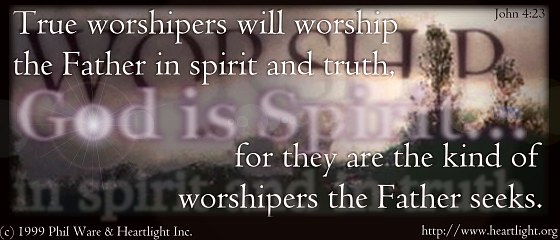
The book of Joshua opens with God's commission to Joshua to lead His people into the land of Canaan. God's aged servants Moses and Aaron has died. Now Joshua, a young man, was faced with this enormous task. If Moses, with all his years of experience was unable to bring the people into the land, what hope was there for him? How would he be able to cope with the seven tribes that inhabited the land, all of them formidable foes? And how could he lead people like the children of Israel, with their fear of death and constant complaints? Faced with such a challenge, Joshua must have felt overwhelmed.
At that point he saw a vision. A man with a drawn sword appeared before him. Not recognizing the Man, he asked, “are you for us or for our enemies?” (Joshua 5:13 NIV). The Man answer was, "Neither." He was neither for one side nor for the other, He has come for one purpose, "As Commander of the army of the Lord I have come." (verse 14). Praise God, this is the purpose of our Lord Jesus! He has not come to help us, not our enemies, but to take His place as CAPTAIN OF THE LORD OF HOST. If you belong to the Lord's host, then He is your Captain. The question here is not one of receiving help, but of accepting leadership. He has not come to offer assistance, but to demand SUBJECTION.
How did Joshua react when he heard that this Man has come as COMMANDER of the Lord's army? "Joshua fell on his face down to the ground in reverence (worship)" (Joshua 5:14). Do you see the ESSENCE of WORSHIPING the ways of God? The issue is one of submission to His leadership. God does not stand in the midst of the conflict giving a little help here or there. When He is in command all is well! You do not know God if you think He can occupy a subordinate position in your battle. It is His place to lead and it is your place to submit. It is only when you are in your right place under His command that you will know what it means to worship and what it means to have the drawn sword wielded on your behalf.
How did Joshua react when he heard that this Man has come as COMMANDER of the Lord's army? "Joshua fell on his face down to the ground in reverence (worship)" (Joshua 5:14). Do you see the ESSENCE of WORSHIPING the ways of God? The issue is one of submission to His leadership. God does not stand in the midst of the conflict giving a little help here or there. When He is in command all is well! You do not know God if you think He can occupy a subordinate position in your battle. It is His place to lead and it is your place to submit. It is only when you are in your right place under His command that you will know what it means to worship and what it means to have the drawn sword wielded on your behalf.


